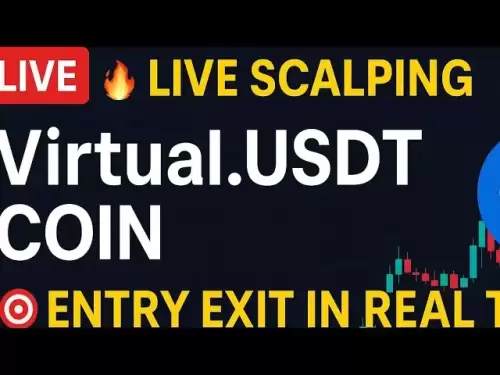-
 Bitcoin
Bitcoin $118,209.3536
1.16% -
 Ethereum
Ethereum $3,151.7546
5.98% -
 XRP
XRP $2.9277
2.35% -
 Tether USDt
Tether USDt $1.0000
0.00% -
 BNB
BNB $689.7099
1.26% -
 Solana
Solana $163.4270
1.91% -
 USDC
USDC $1.0000
0.02% -
 Dogecoin
Dogecoin $0.1983
3.74% -
 TRON
TRON $0.3008
0.51% -
 Cardano
Cardano $0.7435
2.86% -
 Hyperliquid
Hyperliquid $47.6547
-0.48% -
 Stellar
Stellar $0.4625
2.79% -
 Sui
Sui $3.9921
2.71% -
 Chainlink
Chainlink $16.0608
4.23% -
 Hedera
Hedera $0.2348
1.56% -
 Bitcoin Cash
Bitcoin Cash $496.6985
1.25% -
 Avalanche
Avalanche $21.9038
5.41% -
 UNUS SED LEO
UNUS SED LEO $8.8356
-1.88% -
 Shiba Inu
Shiba Inu $0.0...01364
5.31% -
 Toncoin
Toncoin $3.1102
4.35% -
 Litecoin
Litecoin $95.9756
3.59% -
 Polkadot
Polkadot $4.0925
5.78% -
 Monero
Monero $333.7622
-1.44% -
 Uniswap
Uniswap $9.1968
2.25% -
 Bitget Token
Bitget Token $4.6378
6.23% -
 Pepe
Pepe $0.0...01282
6.77% -
 Dai
Dai $1.0002
0.03% -
 Ethena USDe
Ethena USDe $1.0005
0.00% -
 Aave
Aave $329.9143
4.49% -
 Bittensor
Bittensor $441.4995
6.89%
How do I set a transaction limit in Trust Wallet?
Trust Wallet lacks built-in transaction limits due to crypto's decentralized nature, but users can manage spending through budgeting, separate wallets, and external apps.
Mar 27, 2025 at 03:50 am
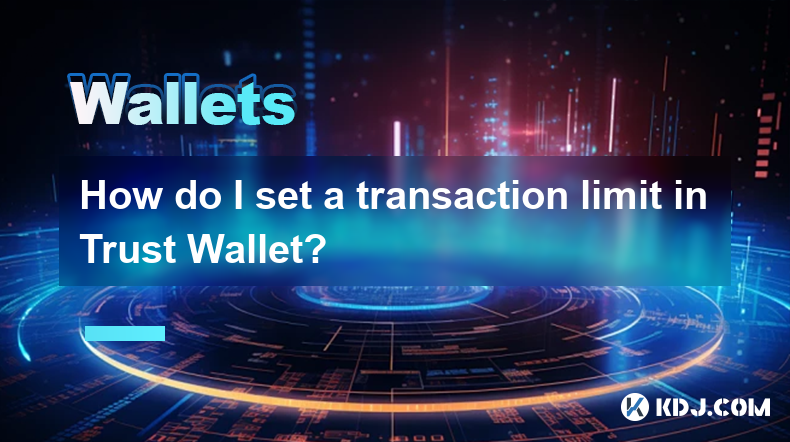
Trust Wallet, a popular mobile cryptocurrency wallet, doesn't offer a built-in feature to directly set transaction limits in the way some banking apps might. This is primarily because of the decentralized nature of cryptocurrencies. There's no central authority controlling transactions like there is with traditional banks. However, you can employ several strategies to effectively manage and limit your spending within the app.
Understanding Transaction Limits in the Context of Trust Wallet
The absence of a direct transaction limit setting in Trust Wallet necessitates a proactive approach to managing your spending. Instead of a built-in limit, you need to implement control mechanisms yourself. This involves careful planning and utilizing features within Trust Wallet and external tools to achieve the desired level of transaction control. Remember, security and responsible spending are paramount when dealing with cryptocurrencies.
Methods to Manage Your Spending in Trust Wallet
One of the most effective ways to manage your spending is through careful budgeting and tracking. Before initiating any transaction, confirm you have sufficient funds and that the transaction aligns with your budget. Trust Wallet provides clear transaction details, including fees, so you can accurately predict the total cost. Always double-check the recipient address before confirming any transaction to avoid irreversible losses.
Use a Separate Wallet for Smaller Transactions: Create a separate wallet within Trust Wallet or even a completely different wallet for smaller, everyday transactions. This isolates your main holdings from smaller purchases, providing an inherent limit to the amount you can spend from your primary wallet.
Set Spending Budgets in External Apps: Numerous budgeting apps allow you to track your cryptocurrency spending alongside traditional finances. These apps can send notifications or alerts when you're approaching your predefined spending limit, offering a form of external transaction control. This requires manual input of your Trust Wallet transactions, but provides valuable oversight.
Utilize Hardware Wallets for High-Value Holdings: For larger sums of cryptocurrency, consider using a hardware wallet. These offer enhanced security and require physical confirmation for every transaction, acting as a natural deterrent to impulsive spending. Hardware wallets integrate with Trust Wallet in some cases.
Regularly Review Your Transaction History: Trust Wallet provides a detailed history of all your transactions. Regularly reviewing this history allows you to monitor your spending habits and ensure they align with your financial goals. This helps in identifying potential overspending patterns.
Enable Two-Factor Authentication (2FA): While not directly a transaction limit, enabling 2FA adds a significant layer of security, making unauthorized transactions far more difficult. This safeguards your funds from potential theft, preventing unwanted transactions.
Avoid Impulse Purchases: The decentralized nature of cryptocurrencies can lead to impulsive buying. Take your time to research before making any purchase. Avoid making hasty decisions, especially with larger amounts of cryptocurrency. Consider waiting a day or two before finalizing significant transactions.
Addressing Security Concerns
While Trust Wallet offers a secure environment, it's crucial to understand and mitigate potential risks. Never share your seed phrase or private keys with anyone. Be cautious of phishing scams and only download the Trust Wallet app from official app stores. Regularly update the app to benefit from the latest security patches. Remember, you are solely responsible for the security of your cryptocurrency holdings.
Frequently Asked Questions
Q: Can I set a daily spending limit in Trust Wallet?
A: No, Trust Wallet does not have a built-in feature to set daily or any other type of spending limit. You need to employ alternative methods like budgeting apps or separating your funds into different wallets.
Q: What happens if I exceed my self-imposed spending limit?
A: There are no automatic consequences. Exceeding your self-imposed limit is simply a matter of exceeding your own financial plan. It’s crucial to adhere to your budget to avoid financial difficulties.
Q: Is Trust Wallet secure enough to hold large amounts of cryptocurrency?
A: Trust Wallet employs robust security measures, but no system is completely impenetrable. For extremely large holdings, consider using a hardware wallet in conjunction with Trust Wallet for added security. Always practice good security habits.
Q: Can I link Trust Wallet to my bank account to set spending limits?
A: No, Trust Wallet is a cryptocurrency wallet and doesn't directly integrate with bank accounts for spending limits. Any spending limit would need to be managed separately through budgeting apps or personal discipline.
Q: If I lose my phone, will I lose my cryptocurrency?
A: Losing your phone can be problematic. Having a backup of your seed phrase is crucial. Without it, recovering your cryptocurrency may be impossible. Never store your seed phrase digitally; write it down and store it securely.
Q: What if I accidentally send cryptocurrency to the wrong address?
A: Cryptocurrency transactions are generally irreversible. Once sent, recovering funds from the wrong address is extremely difficult, if not impossible. Always double-check the recipient address before confirming any transaction. This is a critical step to prevent irreversible loss of funds.
Disclaimer:info@kdj.com
The information provided is not trading advice. kdj.com does not assume any responsibility for any investments made based on the information provided in this article. Cryptocurrencies are highly volatile and it is highly recommended that you invest with caution after thorough research!
If you believe that the content used on this website infringes your copyright, please contact us immediately (info@kdj.com) and we will delete it promptly.
- XRP Price: Higher Lows Hint at Potential Trend Shift?
- 2025-07-16 15:10:12
- Bitcoin, Crypto Casinos, and Bonuses: A New Yorker's Guide to Hitting the Jackpot
- 2025-07-16 15:15:12
- Bitcoin, Cryptocurrency, and Investment: Navigating the 2025 Landscape
- 2025-07-16 15:30:12
- Bitcoin, Deutsche Bank, and Mainstream Adoption: A New Era?
- 2025-07-16 14:30:13
- Bitcoin's ETF Demand & Institutional Momentum: A NYC Perspective
- 2025-07-16 14:50:12
- Bitcoin's Bullish Run: Demand Surges, Correction Unlikely?
- 2025-07-16 12:30:12
Related knowledge
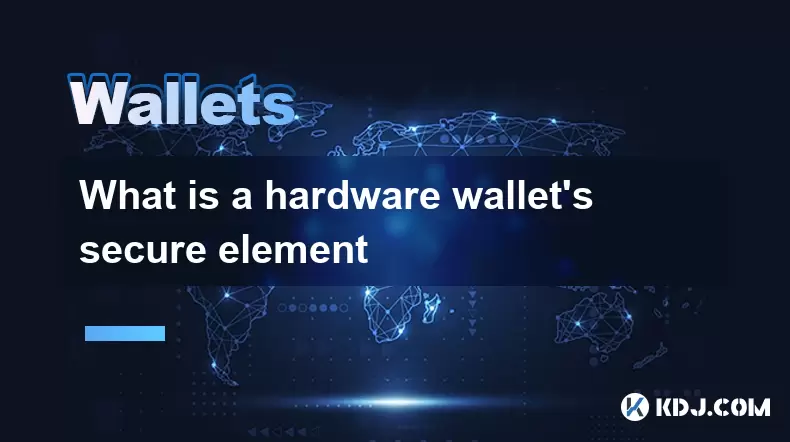
What is a hardware wallet's secure element
Jul 11,2025 at 10:14pm
What is a Hardware Wallet's Secure Element?A hardware wallet is one of the most secure ways to store cryptocurrencies. Unlike software wallets, which ...
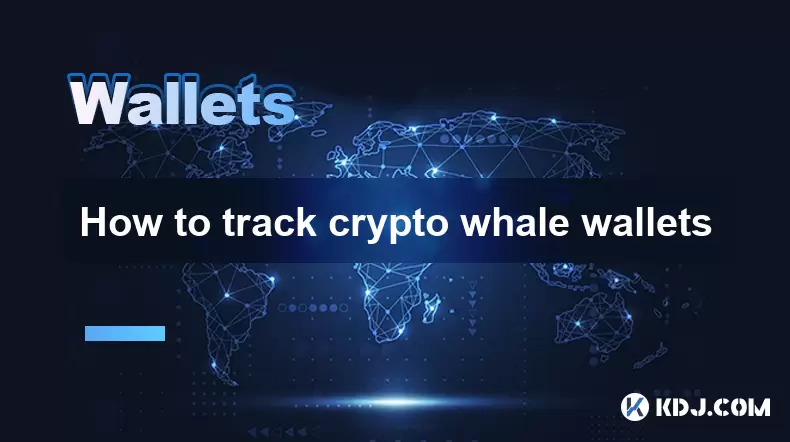
How to track crypto whale wallets
Jul 16,2025 at 10:00am
What Are Crypto Whale Wallets?Crypto whale wallets refer to large cryptocurrency holdings controlled by individuals or entities that have the potentia...
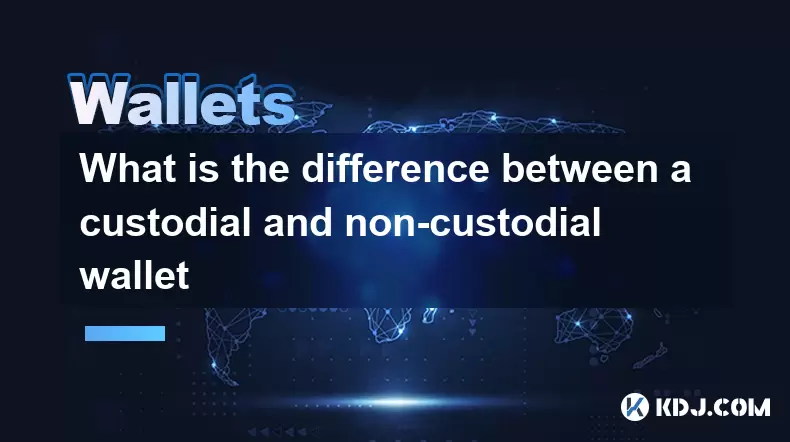
What is the difference between a custodial and non-custodial wallet
Jul 13,2025 at 03:21am
Understanding Wallet Types in CryptocurrencyIn the world of cryptocurrency, digital wallets play a crucial role in managing and securing assets. A wal...
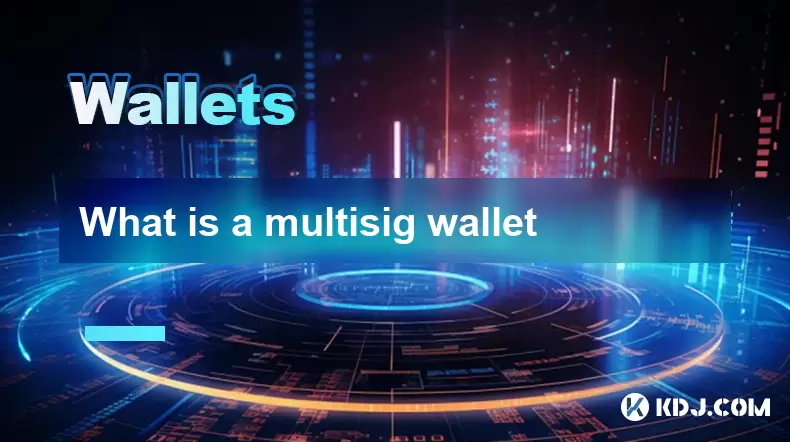
What is a multisig wallet
Jul 16,2025 at 01:42am
Understanding the Concept of a Multisig WalletA multisignature (multisig) wallet is a type of cryptocurrency wallet that requires more than one privat...

How to add a new network to MetaMask
Jul 11,2025 at 11:42pm
Understanding the Need to Add a New NetworkWhen using MetaMask, a popular Ethereum-based cryptocurrency wallet, users often need to interact with diff...
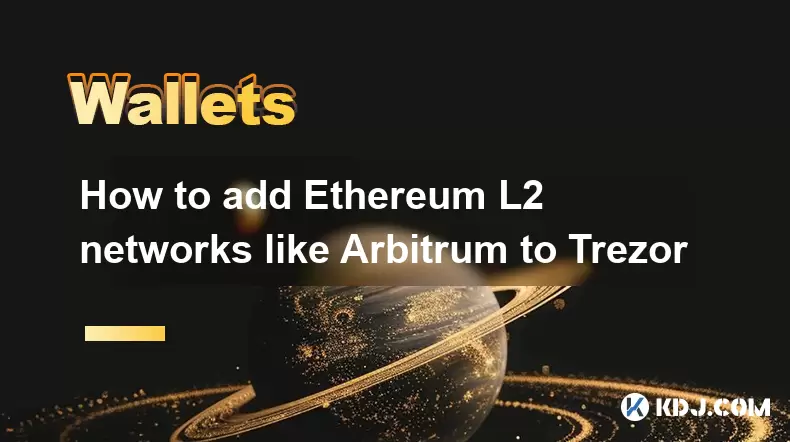
How to add Ethereum L2 networks like Arbitrum to Trezor
Jul 11,2025 at 12:36am
What Is Ethereum L2 and Why Add It to Trezor?Ethereum Layer 2 (L2) networks, such as Arbitrum, are scaling solutions designed to reduce congestion on ...

What is a hardware wallet's secure element
Jul 11,2025 at 10:14pm
What is a Hardware Wallet's Secure Element?A hardware wallet is one of the most secure ways to store cryptocurrencies. Unlike software wallets, which ...

How to track crypto whale wallets
Jul 16,2025 at 10:00am
What Are Crypto Whale Wallets?Crypto whale wallets refer to large cryptocurrency holdings controlled by individuals or entities that have the potentia...

What is the difference between a custodial and non-custodial wallet
Jul 13,2025 at 03:21am
Understanding Wallet Types in CryptocurrencyIn the world of cryptocurrency, digital wallets play a crucial role in managing and securing assets. A wal...

What is a multisig wallet
Jul 16,2025 at 01:42am
Understanding the Concept of a Multisig WalletA multisignature (multisig) wallet is a type of cryptocurrency wallet that requires more than one privat...

How to add a new network to MetaMask
Jul 11,2025 at 11:42pm
Understanding the Need to Add a New NetworkWhen using MetaMask, a popular Ethereum-based cryptocurrency wallet, users often need to interact with diff...

How to add Ethereum L2 networks like Arbitrum to Trezor
Jul 11,2025 at 12:36am
What Is Ethereum L2 and Why Add It to Trezor?Ethereum Layer 2 (L2) networks, such as Arbitrum, are scaling solutions designed to reduce congestion on ...
See all articles























